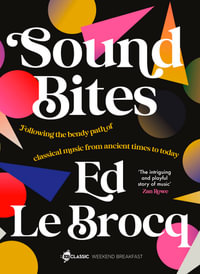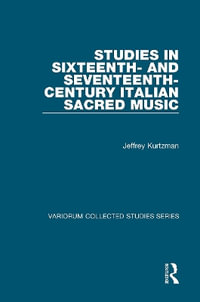Nearly a half century after her death in 1972, Mahalia Jackson remains the most esteemed figure in black gospel music history. Born in the backstreets of New Orleans in 1911, Jackson during the Great Depression joined the Great Migration to Chicago, where she became an highly regarded church singer and, by the mid-fifties, a coveted recording artist for Apollo and Columbia Records, lauded as the "World's Greatest Gospel Singer."
This "Louisiana Cinderella" narrative of Jackson's career during the decade following World War II carried important meanings for African Americans, though it remains a story half told. Jackson was gospel's first multi-mediated artist, with a nationally broadcast radio program, a Chicago-based television show, and early recordings that introduced straight-out-of-the-church black gospel to American and European audiences while also tapping the vogue for religious pop in the early Cold War. In some ways, Jackson's successes made her an exceptional case, though she is perhaps best understood as part of broader developments in the black gospel field. Built upon foundations laid by pioneering Chicago organizers in the 1930s, black gospel singing, with Jackson as its most visible representative, began to circulate in novel ways as a form of popular culture in the 1940s and 1950s, its practitioners accruing prestige not only through devout integrity but also from their charismatic
artistry, public recognition, and pop-cultural cachet. These years also saw shifting strategies in the black freedom struggle that gave new cultural-political significance to African American vernacular culture.
The first book on Jackson in 25 years, Mahalia Jackson and the Black Gospel Field draws on a trove of previously unexamined archival sources that illuminate Jackson's childhood in New Orleans and her negotiation of parallel careers as a singing Baptist evangelist and a mass media entertainer, documenting the unfolding material and symbolic influence of Jackson and black gospel music in postwar American society.
Industry Reviews
"Burford's study is built on a solid foundation of historical sources, ranging from an array of interviews and contemporaneous reviews to Jackson's expansive catalogue of commercial recordings and radio/television broadcasts. The private journal of the singer's confidant and unofficial assistant, Bill Russell, offers fresh insight into her daily life and personal views on music and religion during the critical mid-1950s period. ... Burford has set a high bar
for future scholarly inquiry." -- Ray Allen, American Music Review
"In Mahalia Jackson and the Black Gospel Field, Burford (Reed College) draws from troves of previously unavailable interviews, archival collections, and other historical resources to provide readers with an insightful and in-depth analysis of Jackson's life and career. In so doing, the author also tracks the rise of black gospel music and the social and political culture of the US in the post-WW II era. Burford's critical analysis transcends the
typical biographical treatment and offers a dynamic and engrossing glimpse into the America in which black gospel music sprouted and blossomed. Summing up: Highly recommended" -- CHOICE
"Mahalia Jackson and the Black Gospel Field provides a careful and sensitive analysis of gospel singer Mahalia Jackson that positions her at the center of significant sonic and cultural shifts that redefine mid-century America. This is not the conventional biography, but a critical study that uses Jackson and more importantly her voice as a theoretical lens through which one can interrogate the politics of identity, the racialized and gendered politics
surrounding the reading of black women's voices and bodies, as well as the communal and cultural implications that arise when the culture of a people shifts from the insular environments that birthed it to
the broader spectrum of mainstream popular culture." --Tammy L. Kernodle, Professor of Musicology, Affiliate Faculty of American Studies, Black World Studies and Women, Gender and Sexuality Studies, Miami University
"Mahalia Jackson has finally received the book she deserves - thorough, precise, nuanced, and insightful. Mahalia Jackson and the Black Gospel Field expands our understanding of this great singer and the religious-musical history that she helped define." --Thomas Brothers, Professor of Music, Duke University and author of Help! The Beatles, Duke Ellington and the Magic of Collaboration

























